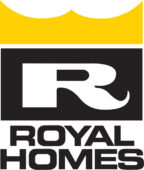So you have decided to go for it and invest in a cottage for the weekends and summer vacations. It is certainly an exciting time! Of course, once you do make the decision to get a cottage, it is important to consider not only where you want to have a cottage, but also how you will finance your new home. To help guide you through this process, we have compiled the major options available to you for financing your cottage.
Buy It Outright
If you are extremely lucky, all you will need to do is find a cottage within your price range and make the purchase outright. If there is not a pre-existing cottage that suits your needs, however, the good news is all is not lost. You can also scout out the perfect piece of land, purchase it, and construct a cottage to fit that land. It could even be a modular home, which will speed the building process and provide a realistic outlook on how much everything will cost right at the outset—no surprises.
Cottage Mortgage
Perhaps the most popular financing option when it comes to buying a new home, including cottages, is taking out a mortgage. While this word is thrown around a lot, what exactly does it mean for you and your wallet? Well, in terms of cottage life, your mortgage can be one of two major things. Most banks, including RBC, have Vacation A and Vacation B options.
The former refers to cottages with permanent foundations, that have access year-round, and include permanent sources of heat and potable water. What the bank wants to know, essentially, is how well your cottage can sustain itself when no one is around for weeks or months at a time. For the most part, these mortgages are the same as mortgages for your primary residence.
Vacation B cottages, on the other hand, are those with wood stoves, only possess seasonal access, may not have a potable water source, et cetera. These are the cottages for those really looking to be at one with the wilderness. Unfortunately, mortgages are harder to come by for this type of property because of the maintenance requirements and how well they do without anyone physically there.
One Time Loan
Do you almost have enough, but not quite? Sometimes it might not be worth it to take out a full mortgage in order to finance the purchase of your cottage. In cases such as this, you can take out a one-time loan from the bank to cover the difference. You can also, should you be in a position to do so, talk to friends and family to help you out if you just need that little bit more. If you choose the latter, it is important to decide how and when you will pay them back—perhaps offering time at the cottage in question is appropriate as well.
Renting
Another option for you for financing your cottage is renting it out to other individuals and families when you and yours do not plan on being there. This way, you are able to invest the money in maintenance, paying any loans/mortgage you might have taken out in order to buy the cottage to begin with, et cetera. Simply put, renting does help mitigate the costs of owning a stellar lakefront cottage.
